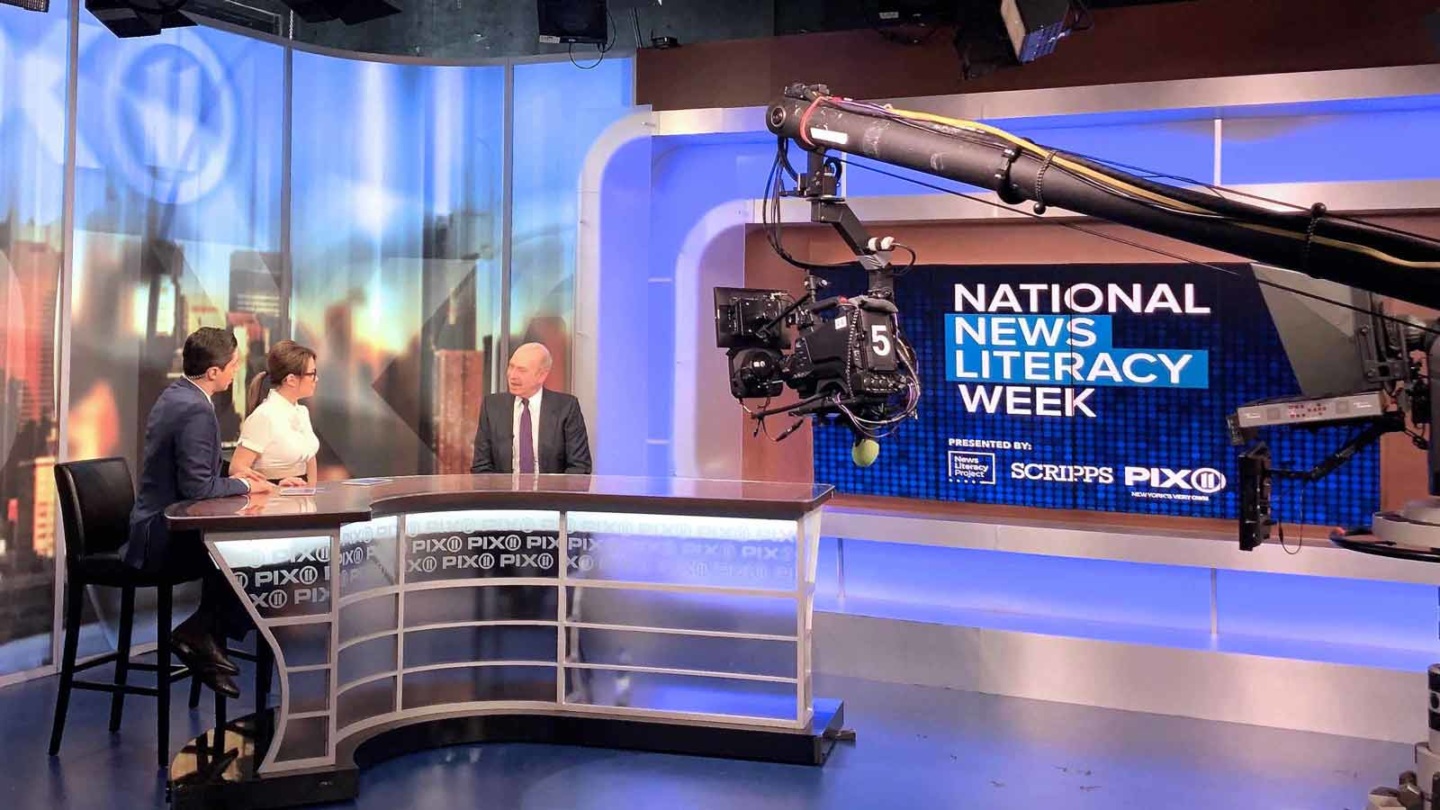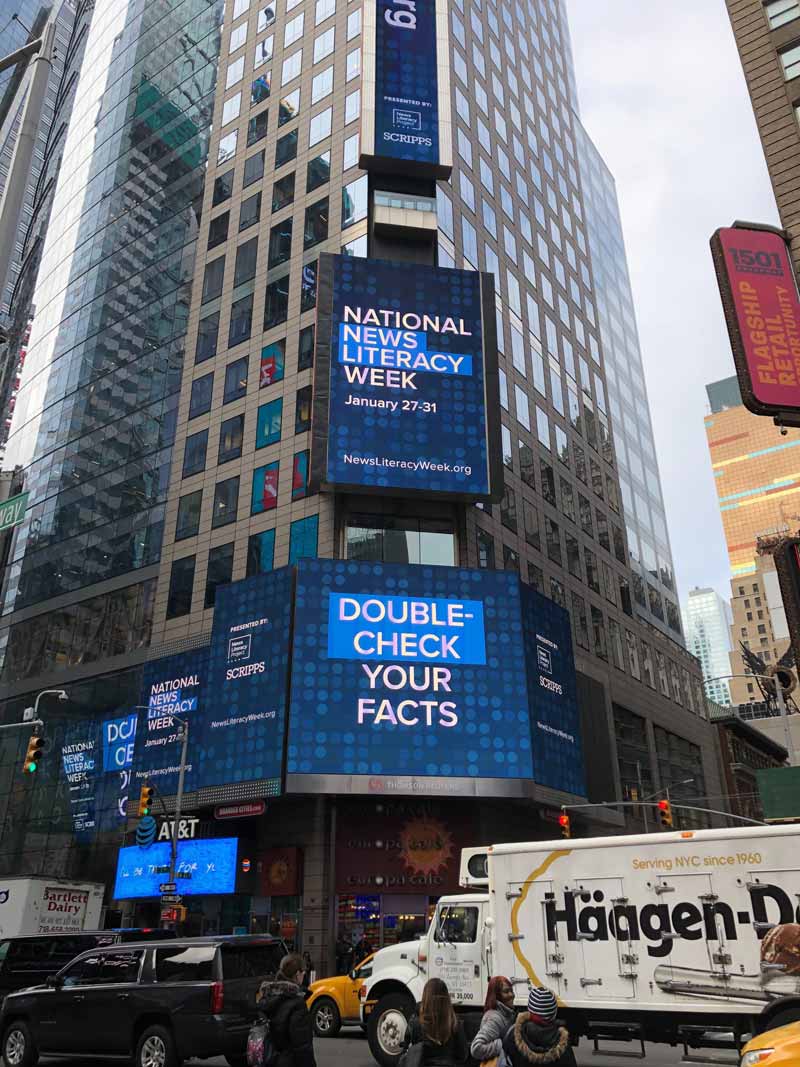
A great week, thanks to you!
With our partner, The E.W. Scripps Company, we at the News Literacy Project are grateful to all of the educators, students, journalists and members of the public who joined us for National News Literacy Week.
We had terrific participation on social media and through Scripps’ local TV stations across the country, and high visibility thanks to donated ad space from news organizations across the country (from a small-town weekly in Rhode Island, The Valley Breeze, to the Los Angeles Times, along with The Washington Post, The Wall Street Journal, The New York Times, The Associated Press, NPR and many more). National News Literacy Week was even featured on Nasdaq’s billboards in Times Square!


National News Literacy Week, promoted on Nasdaq’s billboards. Darragh Worland / The News Literacy Project
The Philadelphia Inquirer published an op-ed by our founder and CEO, Alan Miller, that explained the critical need for news literacy. The Houston Chronicle published an op-ed by Miller and Adam Symson, Scripps’ president and CEO, about the importance of sticking to facts. The Roanoke (Virginia) Times shared Miller’s thoughts on why news literacy is vital to democracy. Editors at other news organizations joined in, writing their own editorials and publishing opinion columns in support of news literacy education. They included the San Francisco Chronicle, the Pittsburgh Tribune-Review, the Post Bulletin (Rochester, Minnesota), The Patriot-News (Harrisburg, Pennsylvania) and The Advocate-Messenger (Danville, Kentucky).
Student reports
On the broadcast and interactive side, National News Literacy Week was featured in promotions on Scripps’ national media brands, including its podcast company, Stitcher, and its multiplatform news network, Newsy. Particularly impressive were the reports that aired on Scripps’ TV stations around the country, co-produced by each station’s journalists and local students.
The students came up with issues that were of concern to them, then worked with the Scripps journalists to put together reports on such teen-focused topics as career training programs, disparities between boys’ and girls’ sports at high schools, and young people’s use of social media, along with broader concerns, such as mental health, climate change in the 2020 election and local cases of missing or murdered indigenous women.
In addition, we featured resources, tips and tools relating to each day’s National News Literacy Week theme (you’ll need to register for our Checkology® virtual classroom as a Basic user to see the lessons):
- Navigating the information landscape (“InfoZones”).
- Identifying standards-based journalism (“Practicing Quality Journalism”).
- Understanding bias — your own and others’ (“Understanding Bias”).
- Celebrating the role of a free press (“Democracy’s Watchdog”).
- Recognizing misinformation (“Misinformation”).
Maintaining news literacy skills
And while National News Literacy Week may be over, news literacy remains an urgent and persistent need. We encourage you to keep your skills sharp by using some of the tips we shared (click the links to learn more):
- Determine if it’s actually news (or if it’s something else). First, consider its primary purpose: Is it informing you, or was it designed to persuade, entertain, or sell?
- Slow down for breaking news. Producing a credible report as events unfold takes time. Especially in early stories, pay attention to whether what’s being claimed has been verified.
- Practice lateral reading. If you have any questions about what you’re seeing or hearing, use other sources to confirm it as you continue to read, watch or listen.
- Take notes, photos or videos. “Citizen watchdogs” can work with journalists to bring attention to matters of importance.
- Know how to spot a conspiracy theory. Just because something can’t be disproved doesn’t mean that it’s true.
And find out just how much you learned during National News Literacy Week by taking this quiz: “How news-literate are you?”
Remember, when you put your news literacy skills to work, you’re no longer part of the misinformation problem. You’re part of the solution.
This item was updated on Feb. 4 with a photo, with links to editorials and columns published in support of National News Literacy Week, and with links to the daily themes.
